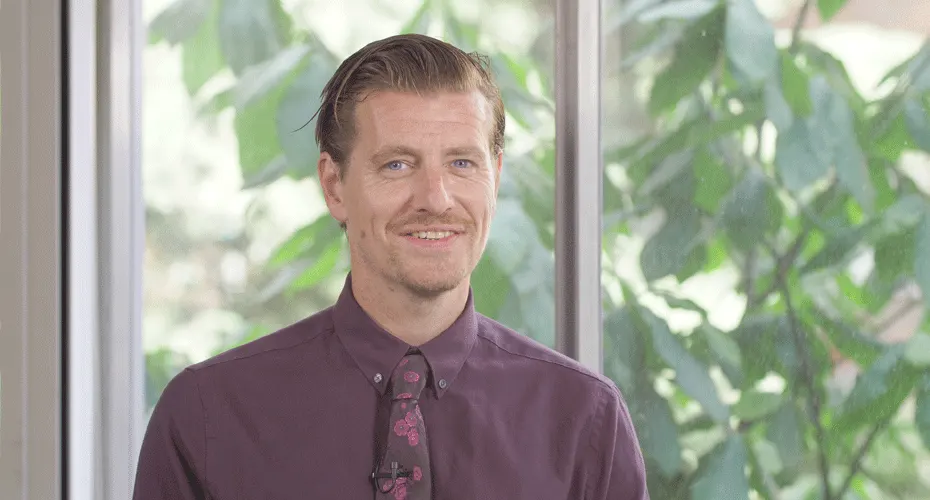Masters applications for 2023 entry are now closed.
Applications for September 2024 will open on Monday 25 September. Applications are now open for programmes with a January 2024 start. View our programmes »
Overview
- Our approach mirrors the wider shift within the social sciences towards the analysis of transnational and global level processes and phenomena
- You will examine individuals’ experiences and relationship with their social and cultural environment and acquire a broad knowledge of the current debates in sociology
- We’ll equip you with the analytical skills needed to engage in and across a range of empirical domains and theoretical perspectives
- Join a truly multicultural and culturally enriching environment, comprising of students from all three disciplines of Sociology, Philosophy and Anthropology
- You will develop a wide range of key transferrable skills that are highly valued by employers within a range of professions
82% of our research is internationally excellent
Top 10 in the UK for Philosophy
Top 15 in the UK for Sociology
82% of our research is internationally excellent
Top 10 in the UK for Philosophy
Top 15 in the UK for Sociology
Entry requirements
We will consider applicants with a 2:2 Honours degree or above in sociology, anthropology, statistics, data or English. While we normally only consider applicants who meet this criterion, if your first degree is in a different discipline, you are coming from a different academic background which is equivalent to degree level, or have relevant work experience, we would welcome your application.
Entry requirements for international students
English language requirements
International students need to show they have the required level of English language to study this course. The required test scores for this course fall under Profile B2. Please visit our English language requirements page to view the required test scores and equivalencies from your country.
Course content
The programme will draw on the department’s research strengths and interdisciplinary outlook to provide students with a sound foundation in sociology at postgraduate level. In addition to taking optional modules from sociology, anthropology and philosophy, you will explore a range of different social research methods and theoretical and conceptual tools, learning to use and apply them in your own research into the social world.
Our programmes have been planned, organised and are delivered in a way oriented towards tapping into and addressing points of overlap and divergence between different disciplinary perspectives. These perspectives are explored, explained and made relevant to the material covered.
The core module in social theory is concerned in the broadest sense with the distinctiveness, or not, of human life and experience in late modern society. More specifically, social theory can be understood as a series of intellectual formulations concerned to respond to a range of questions:
- How does the structure and organisation of society shape how individuals think and (inter-)act?
- What does it mean to say that social order is achieved and how does this occur?
- How and in what ways are our identities and actions enabled and constrained by social structures?
We’ll introduce you to a range of central themes and issues that both classical and contemporary social theorists have addressed in their work equipping you with a broad range of conceptual tools and research methods with which to investigate the social world.
You’ll also choose from a range of optional modules covering fields such as research methods, cultures and environments of health, food and society and philosophy of science.
The modules we outline here provide examples of what you can expect to learn on this degree course based on recent academic teaching. The precise modules available to you in future years may vary depending on staff availability and research interests, new topics of study, timetabling and student demand.
This programme consists of 90 credits of compulsory modules, plus 90 credits of modules selected from a list of options offered in the Department of Social and Political Sciences, Philosophy and Anthropology.
Compulsory modules
| Code | Module |
Credits |
|---|
| SOCM027 |
Social Theory | 30 |
| SOCM904 |
Dissertation | 60 |
| SOCM019 |
Research Methods in the Social Sciences | 15 |
Optional modules
| Code | Module |
Credits |
|---|
|
MA Sociology Option Modules 2025-6 |
| SOCM002A |
Philosophy of the Social Sciences 1 |
15 |
| SOCM002B |
Philosophy of the Social Sciences |
30 |
| SOCM945 |
Philosophy of Science |
30 |
| SOCM046 |
Meaning, Making Consuming |
30 |
| SOCM022 |
Food, Body and Society |
30 |
| SOCM045 |
Food and Sustainability: Economy, Society and Environment |
30 |
| SOCM050 |
Secrecy Studies: On Concealment, Disclosure and Revelation |
15 |
| SOCM049 |
Magic and Ritual |
15 |
| SOCM052 |
Cultures and Environments of Health |
30 |
| POLM063 |
Qualitative Methods in Social Research |
15 |
| POLM803 |
Sources in Modernity and Post-Modernity |
30 |
| POLM168 |
From Oppression to Resistance: Exploring the Intersections of Race, Class and Gender |
30 |
| POLM156 |
The Transformation of Politics in the Global Age |
30 |
| SSIM915 |
Statistical Modelling |
15 |
| SSIM916 |
Machine learning for social data science |
15 |
| POLM140 |
Qualitative Methods in Social Research |
30 |
| SPAM003 |
Computational Social Science 1 |
15 |
| SPAM004 |
Computational Social Science 2 |
15 |
| POLM809 |
Applied Quantitative Data Analysis |
15 |
| POLM897 |
Surveys and Experiments: Design, Implementation and Analysis |
15 |
| SSIM918 |
Data Visualisation |
15 |
Fees
2025/26 entry
UK fees per year:
£12,500 full-time; £6,250 part-time
International fees per year:
£25,300 full-time; £12,650 part-time
Scholarships
The University of Exeter has many different scholarships available to support your education, including £5 million in scholarships for international students applying to study with us in the 2025/26 academic year, such as our Exeter Excellence Scholarships*.
For more information on scholarships and other financial support, please visit our scholarships and bursaries page.
*Terms and conditions apply. See online for details.
Teaching and research
The department is home to a number of leading figures in the subject areas covered by our MA Sociology. Giving students the opportunity to be taught by and learn from some of the most esteemed and respected scholars in their respective fields.
Many of the modules offered on the MA Sociology are taught by members of staff who are actively engaged in research within their specialist areas. Very often, this means that students are typically taught using journal articles, monographs and textbooks, written by the course leader. Not only does this mean they have direct access to the authors whose work they are reading and engaged with, but that the opportunity to discuss the ideas and themes directly both in seminars and a range of more informal settings.
Teaching takes place over the first two terms, leaving the third for your dissertation. Research-centred teaching is at the heart of the programme. Teaching is done in small seminar groups to allow students the best possible interaction with academic staff, through individual presentations and round table discussions of common readings.
Students have the opportunity to engage in a serious piece of research into a topic of their choosing through the dissertation module. You will be assessed through coursework which will vary depending on the modules you choose and the completion of a dissertation.

Dr Christopher Thorpe

Professor Harry G West
Professor of Anthropology
Dr Christopher Thorpe
Christopher’s work explores issues and debates situated at the historical cultural sociology/ sociology of culture interface. He is particularly interested in the subjects of cultural representation, appropriation and the 'autonomy of culture' debate. His work draws on historical forms of 'data' spanning comparative English literature, social and cultural history, travel studies and other disciplines as they relate to the subject of discursive representations of Italy and appropriations of Italian culture, in England and later Britain during the period spanning approximately the English Renaissance to the present day.
Profile page
Dr Christopher Thorpe
Christopher’s work explores issues and debates situated at the historical cultural sociology/ sociology of culture interface. He is particularly interested in the subjects of cultural representation, appropriation and the 'autonomy of culture' debate. His work draws on historical forms of 'data' spanning comparative English literature, social and cultural history, travel studies and other disciplines as they relate to the subject of discursive representations of Italy and appropriations of Italian culture, in England and later Britain during the period spanning approximately the English Renaissance to the present day.
Profile page
Professor Harry G West
Professor of Anthropology
Harry teaches on the core module Social Theory. He is a socio-cultural anthropologist with expertise in political anthropology and the anthropology of food, farming and agrarian society. He has conducted research in Africa, as well as in Europe and North America. He is currently working on food, heritage and memory, with a focus on artisan cheesemaking.
He is Co-Director of the Centre for Rural Policy Research, and Coordinator of the Food Studies Network.
Profile page
Careers
Employer-valued skills
In addition to the specialist knowledge you will gain during your programme, you will also develop transferrable skills valued by employers such as:
- researching, analysing and assessing sources of information
- written and verbal communication skills
- managing and interpreting information
- developing ideas and arguments
Career support
The College's Employability Officer works with our central Career Zone team to give you access to a wealth of business contacts, support and training, as well as the opportunity to meet potential employers at our regular Careers Fairs.













